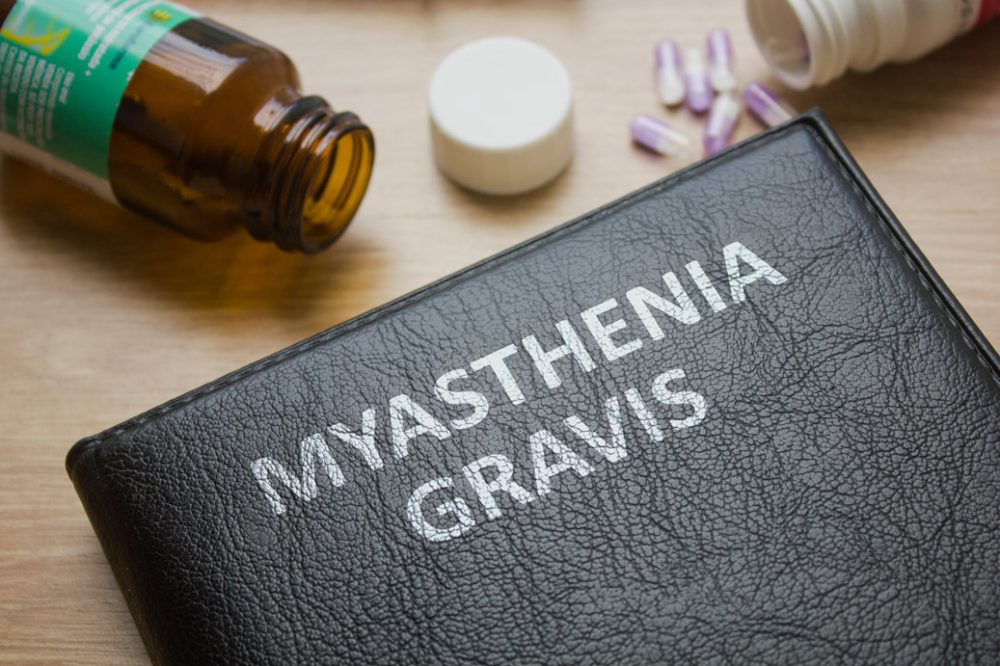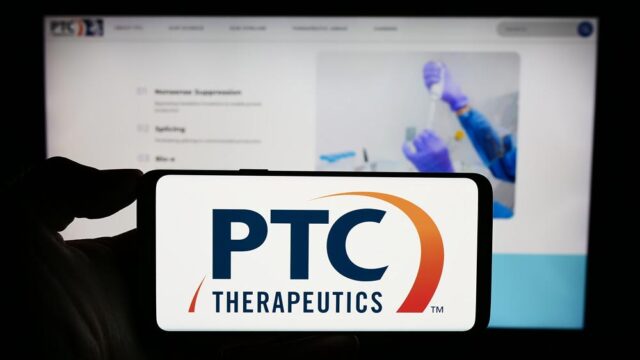Advertisment
FDA approval of Rystiggo for the treatment of adults with generalized myasthenia gravis – UCB

UCB announced Rystiggo (rozanolixizumab-noli) has been approved by the FDA for the treatment of generalized myasthenia gravis (gMG) in adult patients who are anti-acetylcholine receptor (AchR) or anti-muscle-specific tyrosine kinase (MuSK) antibody positive.
Rozanolixizumab-noli injection for subcutaneous infusion is a humanized IgG4 monoclonal antibody that binds to the neonatal Fc receptor (FcRN), resulting in the reduction of circulating IgG..It is the only FDA-approved treatment in adults for both anti-AChR and anti-MuSK antibody-positive gMG, the two most common subtypes of gMG.
“gMG can cause unpredictable fluctuations in severity and frequency of symptoms, which are often debilitating and can substantially impact the lives of patients. People living with gMG often face treatment options that are broad-acting, and that have traditionally only offered symptomatic relief” , explained Professor Vera Bril, Professor of Medicine (Neurology), University of Toronto, Director of the Neuromuscular Section, Division of Neurology, University of Toronto and University Health Network, Toronto, and lead investigator of the MycarinG study. “There is a significant need for new, innovative treatment options to reduce the day-to-day burden of gMG. Rozanolixizumab-noli is a new treatment option, targeting one of the mechanisms of disease to provide symptom improvement in patient-and physician reported outcomes at day 43.”
gMG is a rare, chronic, heterogeneous (phenotypic and pathogenic), unpredictable autoimmune disease characterized by dysfunction and damage at the neuromuscular junction (NMJ). Several factors are understood to be drivers of gMG disease pathology, including complement-cascade, immune cells and pathogenic IgG autoantibodies. Pathogenic IgG autoantibodies can impair synaptic transmission at the NMJ by targeting specific proteins on the post-synaptic membrane. This disrupts the ability of the nerves to stimulate the muscle and results in a weaker contraction. gMG has a global prevalence of 100–350 cases per every 1 million people.
“No two people living with gMG experience the disease in the same way, so we can’t take a ‘one size fits all’ approach to disease management,” said Iris Loew-Friedrich, Executive Vice-President and Chief Medical Officer at UCB. “Disease management should be based on the clinical needs and preferences of the individual patient, and the aim of treatment is to help restore that patient’s ability to carry out activities of daily living. The approval of rozanolixizumab-noli means doctors have an additional approved treatment option for their gMG patients who have not yet found a treatment that meets their needs.”
The FDA approval is supported by safety and efficacy data from the pivotal Phase III MycarinG study (NCT03971422), published in The Lancet Neurology in May 2023. The primary efficacy endpoint was the comparison of the change from baseline between treatment groups in the MG-ADL total score at day 43. MG-ADL is a measurement tool which assesses the impact of gMG on daily functions of 8 signs or symptoms that are typically affected in gMG. These include activities such as breathing, talking, swallowing, and being able to rise from a chair. Each item is assessed on a 4-point scale where a score of 0 represents normal function and a score of 3 represents loss of ability to perform that function. A total score ranges from 0 to 24, with the higher scores indicating more impairment. A statistically significant difference favoring rozanolixizumab-noli was observed in the MG-ADL total score change from baseline [-3.4 points in rozanolixizumab-noli-treated group at either dose vs -0.8 points in the placebo-treated group (p<0.001)].
The secondary endpoint was the change between treatment groups from baseline to day 43 in the QMG. The QMG is a 13-item categorical grading system that assesses muscle weakness. Each item is assessed on a 4-point scale where a score of 0 represents no weakness and a score of 3 represents severe weakness. A total possible score ranges from 0 to 39, where higher scores indicate more severe impairment. A statistically significant difference favoring rozanolixizumab-noli was observed in the QMG total score change from baseline [-5.4 points and -6.7 points in rozanolixizumab-noli-treated group at =7mg/kg and =10 mg/kg dose level, respectively, vs -1.9 points in the placebo-treated group (p<0.001)].
The most common adverse reactions (reported in at least 10% of patients treated with in rozanolixizumab-noli) were headache, infections, diarrhea, pyrexia, hypersensitivity reactions, and nausea.
Rozanolixizumab-noli will be commercially available in the U.S. during the 3rd quarter of 2023.
The FDA reviewed rozanolixizumab-noli under Priority Review. Rozanolixizumab is also currently under review by the European Medicines Agency (EMA) and the Japanese Pharmaceuticals and Medical Devices Agency (PMDA) for the treatment of adults with gMG. In 2019, the U.S. FDA granted orphan drug designation to rozanolixizumab-noli for the treatment of generalized myasthenia gravis. Orphan designation was granted by the European Commission in April 2020 to rozanolixizumab for the treatment of generalized myasthenia gravis. The PMDA granted similar orphan status to rozanolixizumab in Japan in November.10 Responses from regulatory agencies to these submissions are expected by H1 2024.
See-Bril V. “Efficacy and safety of rozanolixizumab in patients with generalised myasthenia gravis: a randomised, double-blind, placebo-controlled, adaptive Phase III study MyCarinG study”. Lancet Neurol. 2023;22(5):383-94.





